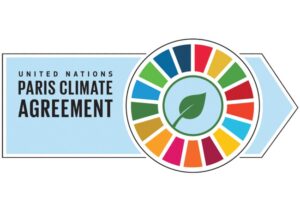GS 3 – Environment

Context:
Article 6 provides a framework for voluntary international cooperation to achieve climate goals under the Paris Agreement. It is one of the most debated sections, as it governs carbon markets and non-market approaches.
Key Provisions
- Article 6.2 – Cooperative Approaches:
- Countries can voluntarily cooperate and transfer mitigation outcomes (ITMOs – Internationally Transferred Mitigation Outcomes).
- Ensures transparency, avoidance of double counting, and robust accounting.
- Article 6.4 – Mechanism (Successor to CDM under Kyoto Protocol):
- Establishes a UN-supervised crediting mechanism to support emission reductions and sustainable development.
- Allows participation of both public and private actors.
- Generates tradable credits from projects that reduce emissions.
- Article 6.8 – Non-Market Approaches (NMAs):
- Encourages cooperation beyond carbon trading (e.g., technology transfer, adaptation support, capacity building).
- Promotes holistic approaches to sustainable development.
Importance
- Enhances cost-effective mitigation by enabling international carbon markets.
- Provides financing opportunities for developing countries through carbon credit projects.
- Encourages global cooperation while safeguarding environmental integrity.
Challenges
- Unresolved issues: Double counting, baseline setting, credit quality, and transparency.
- Risk of greenwashing if carbon markets lack strong monitoring.
- Developing nations fear inequity in benefit-sharing and limited adaptation financing.




